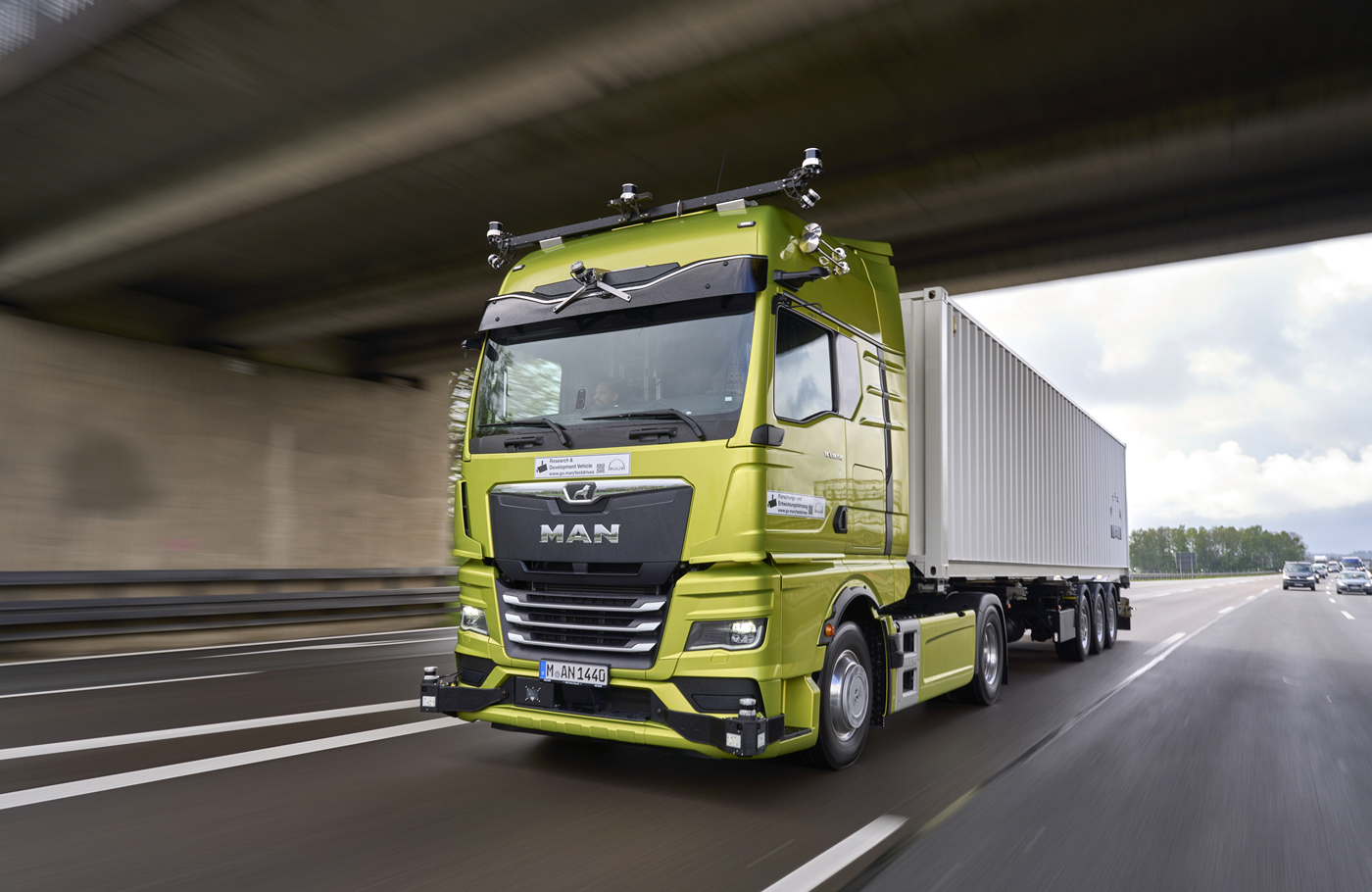Autonomy set to soar
Autonomy set to soar
Extra-heavy commercial vehicles (EHCVs) have moved firmly into the world of electrification. JACO DE KLERK takes a look at another advance that is thriving in this sector.
Advancements in EHCVs have accelerated over the last couple of years. Not long ago, electrification of these massive movers was thought to be a “pie in the sky” idea, with autonomous driving reserved for sci-fi shows and movies.
Now, however, these vehicles are adopting electric (and other) drivetrains both locally and abroad, while autonomous EHCVs that could operate on public roads are just around the corner.
According to Fairfield Market Research, a UK-based vehicle market research provider, the global heavy-duty autonomous vehicles market is on the cusp of a transformative growth phase, with a projected compound annual growth rate (CAGR) of 20% anticipated between 2023 and 2030. The market is poised to reach an impressive value of US$200 billion by the end of the forecast period.
The report, “Global Heavy-Duty Autonomous Vehicles Industry Analysis, Size, Share, Growth, Trends, Regional Outlook, and Forecast 2023-2030 – (By Vehicle Type Coverage, By Level of Autonomy Coverage, By Geographic Coverage and By Company)”, states that heavy-duty autonomous vehicles, designed for tasks requiring large load-carrying capacity and the ability to navigate challenging terrains, are revolutionising industries such as construction, mining, and logistics. “While the market is currently in its early stages, it is expected to witness rapid expansion as technology matures and the advantages of autonomous operation become more apparent,” the report notes.



It adds that drivers of growth include improved safety features and efforts for road safety measures. The rising demand for autonomous vehicles is driven by the quest for safer transportation solutions and the development of advanced autonomous commercial vehicle technologies. Heavy-duty autonomous vehicles offer improved driver and vehicle safety features, along with enhanced fuel and battery power efficiency, making them increasingly attractive to industries requiring heavy-duty vehicles.
The alarming increase in road accidents has led to growing concerns about road safety. Heavy-duty autonomous vehicles, equipped with advanced navigation systems, lane management systems, and anti-collision systems, are seen as a safer alternative to traditional heavy vehicles. Moreover, they have the potential to reduce traffic congestion and contribute to road safety efforts.
It’s no wonder that major players within this sector are embracing autonomy and steering the way forward. A stellar example was showcased in Germany by MAN Truck & Bus in mid-April, as the company became the first commercial vehicle manufacturer to deploy a self-driving truck on a German motorway, following permission from the government to test its Level 4 autonomous driving technology.
MAN has been intensively pushing the development of autonomous trucks for use in logistics hubs and for hub-to-hub traffic on motorways for some time. Freight volumes – in particular, transport between logistics hubs such as the warehouses of large online department stores – are growing steadily.
The use of autonomous trucks in so-called hub-to-hub transport is particularly suitable for this. The trucks are always on the road, extremely efficient in terms of consumption, and safe to drive. There are no driving time breaks, so the vehicles can be perfectly integrated into tightly synchronised logistics processes. In the long term, MAN states that the efficient use of autonomous trucks can reduce overall operating costs by 10 to 15%. The new technology can also alleviate the driver shortage (there is already a shortage of up to 100,000 truck drivers in Germany alone).
The test truck, a MAN TGX dubbed Calypso, drove around 10km on the A9 autobahn between theAllershausen and Fürholzen junctions in the state of Bavaria. (The A9 is the main road connecting Berlin and Munich via Nuremburg.) On board were Federal Transport Minister Dr Volker Wissing and MAN CEO Alexander Vlaskamp.
“The first Level 4 test drive of an autonomous truck on a German motorway proves that Germany has taken a leading position in Europe with the law on autonomous driving. Our goal is to become the leading market for automated and connected driving. Today is a milestone for logistics in Germany. The ever-increasing volume of transport, coupled with the worsening shortage of drivers, is a challenge for society as a whole. Autonomous trucks can help to alleviate the situation. In addition, the intelligent networking of freight transport offers the opportunity to make transhipment from road to rail more efficient and thus strengthen climate-friendly combined transport,” said Dr Wissing, Federal Minister for Digital Affairs and Transport.
“Today we are taking another big step towards autonomous commercial vehicles, the second major future field alongside the switch to CO2-free drives. This year, we are initially running tests with prototypes on the motorway. Further hub-to-hub projects will follow from 2025, but then in typical customer applications. We arethus taking the next development step towards series production of autonomous trucks towards the end of the decade,” said Vlaskamp. “The law on autonomous driving gives our industry the necessary planning security. To realise autonomous driving, however, we also need to work closely with infrastructure operators such as Autobahn GmbH. Only together can we put autonomous driving on the road.”
To date, MAN has filed 133 patent applications in the field of autonomous driving, 33 of which have alreadybeen granted.
Well done MAN, for setting autonomy up to soar!
Published by
Jaco de Klerk
focusmagsa




